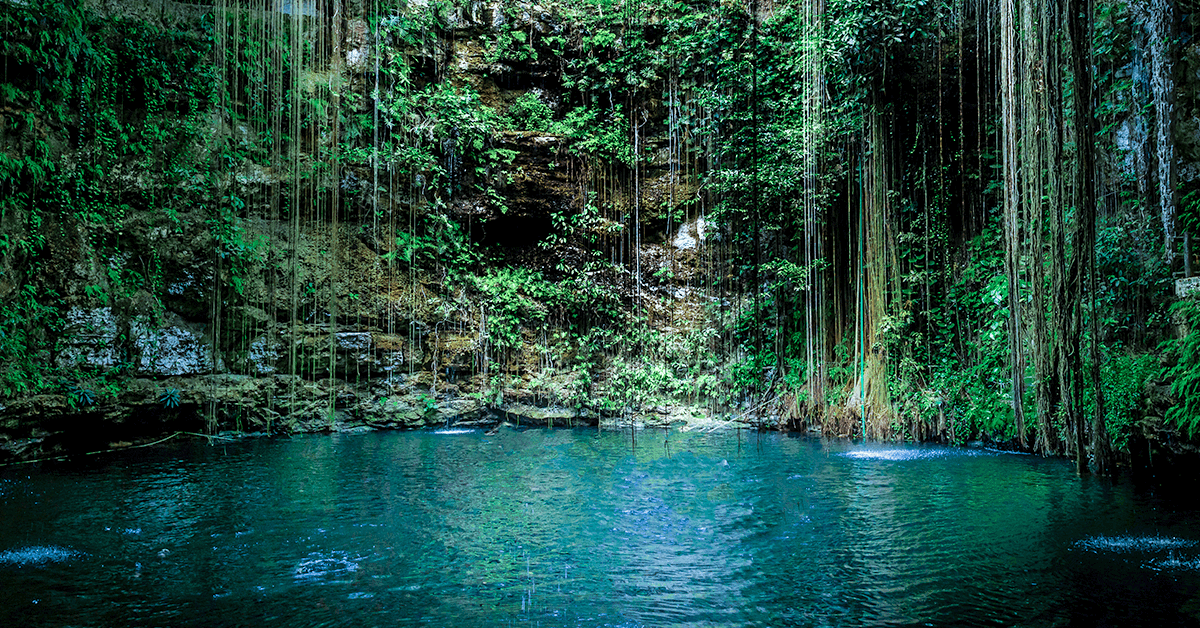The Yucatán Peninsula is one of the few regions in Mexico rich in freshwater. This makes it a strategic area due to its high level of hydrological reserves.
This is a result of the special characteristics of the subsoil and its climatic conditions. The peninsula is famous for the presence of a large number of so-called "cenotes," which are underground aquifers formed by the total or partial collapse of the limestone vault and which have served as sources of water for human settlements for centuries.
With development and population growth, the pollution levels in these interconnected cenotes have grown to the point of becoming a red flag. The pollution has two sources: saltwater seepage in coastal areas, and human activity.
This is where the Bepensa Foundation has developed specific programs and actions to preserve the aquifer in the Yucatán Peninsula.
National Reforestation and Water Harvesting Program: Promotes tree restoration, water harvesting, and community participation in actions that improve their quality of life. This program has resulted in the planting of a total of 2.9 million trees, the restoration of 2,739 hectares of forest, and the maintenance of 5,741 hectares.
1. As part of the community support, a water collection basin has been rehabilitated in Yucatán, along with 15 community cisterns and 15 roof-mounted water collection basins on the peninsula. These projects support productive projects in the area, such as 15 backyard gardens, 50 fruit orchards, three stevia-producing modules, and 980,000 trees produced by community nurseries in the area.
2. Project in conjunction with the Gonzalo Río Arronte Foundation: This involves installing appropriate technologies at rural housing levels for the collection, storage, and disinfection of water, as well as for the treatment and reuse of wastewater (gray and black) in backyard cultivation areas.
3. Cenote Sanitation Project: This project has enabled the comprehensive sanitation of more than 16 cenotes with actions such as: surface and underwater cleaning of the water body, reforestation, awareness talks to residents, and placement of awareness signs.
4. Miguel Colorado Ejido Conservation Project: This project aims to contribute to the conservation, protection, and sustainable use of water resources in the Miguel Colorado Ejido in Campeche. This site covers an area of 36,568 hectares and houses 42 cenotes and two lagoons.
In this way, Bepensa not only contributes to the maintenance of one of the greatest assets of southeastern Mexico but also contributes to the creation and strengthening of a culture of conservation essential to the maintenance of this vital asset.



